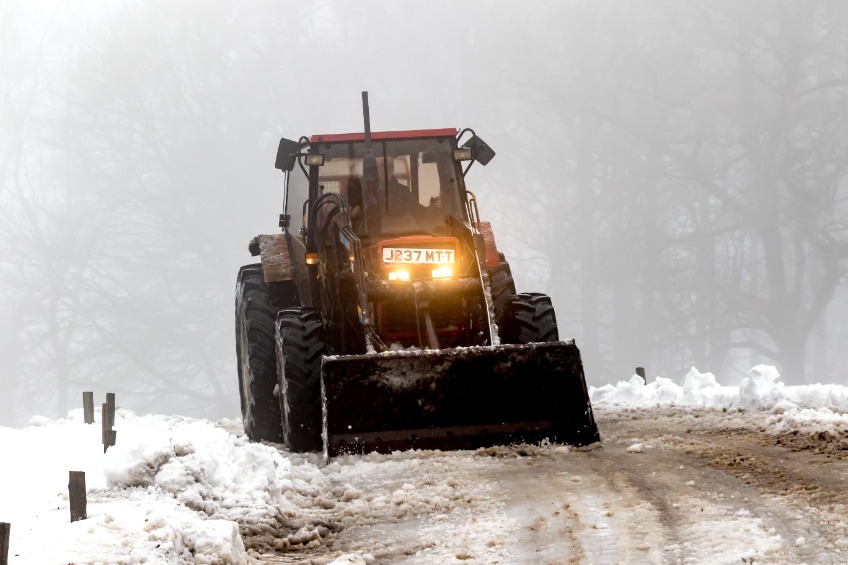
Farmers are being urged to take 'extreme care' while working in wintery hazards as icy, snowy and freezing fog conditions are set to continue.
Parts of the UK saw heavy snow and falling temperatures which, coupled with treacherous conditions on rural roads, caused additional challenges for farmers.
The Met Office has issued yellow weather warnings for many areas in the UK and is expecting overnight temperatures to drop to -10 degrees Celsius or lower in isolated spots.
NFU Mutual said it was 'paramount' for farmers to avoid taking risks which could lead to injury or fatalities.
“For farmers working alone, it is important they tell someone where they will be and what time they should be back... the What3Words app provides a location in the event of an emergency," said NFU Mutual rural affairs specialist, Hannah Binns.
And with the freezing temperatures, the risk of pipes freezing in homes and farms is very high, the rural insurer said, with bursts usually occurring when the thaw starts and frozen water expands in the pipes.
Ms Binns said: "For this reason, it is important to check pipes around homes, outbuildings and farmyards every few hours as the temperatures rise above freezing so you can isolate a leak before it causes devastating damage.
She added: “We are also calling for the public to take extreme care driving on rural roads and not to park on narrow country lanes or in front of gates and farm entrances as this could block access for emergency services and farm vehicles.”
It comes as NFU Mutual recently urged farmers to act now to protect their farms from the devastating impact of winter storms.
The warning came after last year’s Storm Arwen battered the countryside, with claims figures totalling over £80m for farms and other rural businesses.
This was followed by Storms Dudley, Eunice and Franklin, which hit the country in quick succession earlier this year, which caused damage totalling over £170m.
Ms Binns said isolated rural communities, farms and dwellings were more at risk from extreme weather.
“There are a number of preventative steps farmers can take while the weather is calm, such as identifying safer ground to move livestock to in the event of flooding or snow, but human safety should always be the number one priority."
She added: “It is also worth noting alternative fuel and power sources in case of a power cut or disruption, such as making sure generators are in working conditions and able to run at full load for long periods of time.
“It is important to keep up-to-date with weather warnings and have your insurer’s details to hand.”
